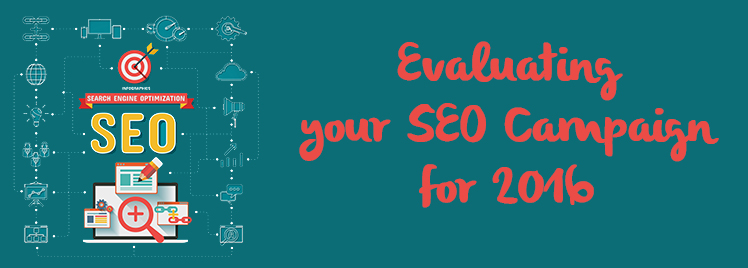-
Traffic
Get More Traffic
SponsoredLinX offers a number of different services to help drive more qualified traffic to your website. Google Ads Management Search Engine Optimisation Microsoft Ads Facebook Advertising Google Ads Mobile“SponsoredLinX are a rarity in today’s market place, they promise a lot but deliver more. Our business has grown by over 400% in one month; we are amazed at the difference they have made.”
-
Conversion
Convert More Leads
Our second step is making sure that your website is able to convert the traffic you receive into leads for your business. Optimising your website to convert more leads is important to a profitable campaign. Web Development Convertopages Do It For Me eCommerce“I just want to say thank you! The changes that you have applied in our AdWords campaign have definitely seen an improvement on click quality and sales for HippityHop.”
-
Retention
Retain Your Customers
As you build up a customer base you need to make sure to keep engaged and retain your relationship. LinX App“SponsoredLinX fully redesigned our main company website with a fresh, clean and professional look. The ‘Google friendly’ web design were part of the fantastic ongoing service we received.”

Evaluating your SEO Campaign for 2016
It’s no secret that Search Engine Optimisation (SEO) can be an expensive marketing strategy but there’s no shortage of sources online saying it’s an absolute must for any business. Whilst many of these sources may be biased there is no denying that organic traffic is an incredibly effective method making up a large share of search traffic with no cost per click associated. But how do you know what portion of your marketing budget should go into SEO and how long should you run it for? SEO is an unusual landscape and it’s important to be aware of certain factors when budgeting for SEO.
SEO exists in a parallel dimension that is close to our own but slightly offset chronologically
One of the trickiest things when it comes to including SEO in a business’ marketing budget is the lag time between expense and return. Everyone knows SEO is a long term process but the reality is that due to Google only caching your website roughly once a fortnight it takes 6-8 weeks to see the full impact on rankings of a single strategy. Because of this even a successful strategy will take 6-8 weeks before it really starts to kick in. This means your expense will be in one quarter and the return will be in the following one. This can make SEO slightly problematic to assess but as long as you compare results now with expenditure from the previous quarter you’re at least looking at the relevant figures.
SEO is the freight train, not the Ferrari
It may not be fast but it certainly is powerful. SEO builds momentum over time as your website accumulates more trust and authority with search engines. Add in the fact that there is no cost per click on organic traffic and you have a campaign that remains at the same cost but continues to build more and more Return on Investment (ROI). Put simply, the longer you run it the better it performs. The headache here is that when running any marketing campaign it’s important to evaluate its effectiveness often to make sure your investment is generating a return. Not every SEO campaign can be a success and you don’t want to keep pouring money into something that will never work.
Knowing when to call it can be a challenge but a trustworthy SEO company will be able to have a realistic discussion with you about how things are going and whether they are at least moving in the right direction. As a general rule you would want to give it at least six months but more competitive campaigns could take years to truly bear fruit. Once the campaign is generating enough return to completely offset its cost then any further improvement you have will be massively beneficial as it won’t increase your costs.
SEO is a team player
A SEO campaign should definitely be evaluated on its own generated ROI but it’s also important to recognise the ways in which it supports your other marketing activities. If you’re running more traditional marketing methods such as TV, Newspaper or Radio, many of the people you reach won’t remember your business name. Sometimes they will simply recognise that they need your product or service and in either case they’re likely to search online. If you don’t rank well then your marketing has just paid for a competitor who does to get that new customer. If you have effective SEO in place then you’re much more likely to be found by that person, not to mention the people your competitors’ advertising campaigns are reaching.
SEO also supports online marketing efforts in a variety of ways. The obvious one is that higher organic rankings lead to increased quality scores and therefore a lower cost per click for your AdWords campaign. It goes a lot deeper than that however. As any digital marketing professional will tell you, cross channel conversions are vitally important and convert at much higher rates. It doesn’t matter whether they find you organically and then click on your ad to buy because they remember you, or they see your ad and then you earn their trust when they find you in the organic listings. What matters is that if you aren’t running multiple types of marketing you’ll miss out on these powerful moments in which recognition builds the trust required to buy.
All in all SEO is a very complex thing both from a technical point of view but also from a marketing strategy standpoint. Being successful in your SEO strategy requires a solid understanding of what SEO can (and arguably more importantly) cannot do along with a firm grasp of how you should be evaluating its success or failure. If you understand the nature of SEO and you’re able to correctly evaluate it then you’ll be able to reliably assess how much you should be spending on it.
Interested in starting a comprehensive SEO strategy for your business? Let the team here at SponsoredLinX help. Call us on 1300 859 600 today.


